Understanding Oxycodone
Learn about oxycodone and substance abuse
Capable of interacting with the same receptors in the brain as heroin, oxycodone is a prescription painkiller that can destroy a person’s life if it is abused and proper treatment is delayed or never received. When consumed for legitimate medical reasons, this medication can improve a person’s quality of life. However, if it is casually misused or regularly abused as a means of achieving a mind and mood-altering high, an individual can become physically dependent on it and realize that this type of chemical dependency problem is very difficult to overcome without assistance.
Oxycodone is classified as an opioid and is highly addictive in nature. Therefore, if a doctor prescribes this painkiller, it is important to only take it as directed. Disregarding a physician’s directions or intentionally abusing oxycodone can lead a person down a path of ongoing substance abuse, which can make an individual susceptible to experiencing withdrawal symptoms, an overdose, polysubstance abuse, and a variety of other consequences that can be far-reaching.
Considering the severity of an oxycodone addiction, it’s in your own best interest to seek professional services if you are suffering from this sort of problem. In doing so, you can reclaim your life and heal from the damage caused by the abuse of oxycodone once and for all.
Statistics
Oxycodone addiction statistics
According to the American Society of Addiction Medicine, as many as two million people in the United States were battling addictions to opioids, which includes oxycodone. Additionally, because of the ever-growing opioid epidemic in this country, death as a result of this form of substance abuse is now the second leading cause of accidental death in the United States. Finally, it has been realized that nearly 25 percent of heroin users go on to abuse oxycodone and other opioid painkillers to continue their addictions.
Co-Occurring Disorders
Oxycodone addiction and co-occurring disorders
In the event you make the brave choice to seek help for an oxycodone abuse problem, it’s possible that you’ll also receive care for other mental health or substance abuse concerns as well. If you’re grappling with any of the following co-occurring disorders, effective treatment will address them at the same time as your oxycodone addiction:
- Posttraumatic stress disorder (PTSD)
- Other substance use disorders
- Depressive disorders
- Bipolar disorder
- Anxiety disorders
Causes and Risk Factors
Causes and risk factors of oxycodone addiction
If you’re wondering why you’ve come to struggle with oxycodone abuse, you must consider several factors. Research has deduced several possible reasons as to why you are battling this form of chemical dependency, so it may be helpful to know the following information:
Genetics: Researchers have confirmed that addiction can run in families. Therefore, if you have close family members, namely a biological parent or sibling, who struggled with chemical dependency, then it is possible that you could abuse and become addicted to oxycodone or other substances as well.
Environmental: Outside influences can make you more vulnerable to abusing and eventually becoming addicted to oxycodone. For example, if you have a prescription for this medication or have illegal access to this substance, you may be at risk for misusing it. Furthermore, if you don’t have adequate support from close friends and loved ones, or do not have healthy skills for coping with stress, you may also be in danger of abusing oxycodone if you are able to get it.
Risk Factors:
- Receiving a prescription for oxycodone
- Prior substance abuse
- Poverty
- Personal history of mental illness
- History of trauma
- Family history of substance abuse
- Family history of mental illness
- Early exposure to substance abuse
Signs and Symptoms
Signs and symptoms of oxycodone addiction
There are many signs and symptoms that can suggest that you have a problem with the abuse of oxycodone. If you have experienced any of the following, it would be to your advantage to seek professional help:
Behavioral symptoms:
- Trying to illegally obtain a prescription for oxycodone or attempting to acquire this drug via another illicit means
- Trying to borrow or steal money or goods to get oxycodone
- Stealing oxycodone that has been prescribed to someone else
- Missing work or school
- Declining performance at work or school
- Attempting but failing to end one’s use of oxycodone
- Abusing oxycodone when it is obviously risky or reckless to do so
- Abusing oxycodone even after experiencing negative outcomes
Physical symptoms:
- Weight loss
- Shallow, slow, and/or labored breathing
- Problems with balance, coordination, and reflexes
- Numbness to pain
- Itchiness
- Faint pulse
- Excessive yawning
- Drowsiness
- Dilated pupils
Cognitive symptoms:
- Poor spatial ability
- Poor focus
- Poor concentration
- Impaired memory
- Impaired judgment
Psychosocial symptoms:
- Paranoia
- Mood swings
- Loss of interest in significant activities
- Anxiety
- Angry outbursts
Effects
Effects of oxycodone addiction
Oxycodone addiction is a severe enough chemical dependency problem where several detrimental effects can happen in your life if you don’t seek treatment. However, by seeking effective treatment, you can avoid the following consequences:
- Unemployment
- Suicidal thoughts
- Social isolation
- Sexual dysfunction
- Self-harm
- Physical injury due to impaired judgment and coordination
- Marital strife, including separation and divorce
- Loss of child custody
- Legal problems, including arrest and incarceration
- Job loss
- Financial ruin
- Family discord
- Damaged or ruined interpersonal relationships
- Damage to vision
- Damage to heart and lungs
- Academic failure
Withdrawal Symptoms
Withdrawal symptoms of oxycodone addiction
Effects of oxycodone withdrawal: The longer that you misuse oxycodone, the more likely you are to become dependent on this medication. Because of this fact, if you stop taking oxycodone, you have a greater chance of experiencing the following withdrawal symptoms:
- Watery eyes
- Vomiting
- Tremors
- Tics
- Shakiness
- Runny nose
- Profuse sweating
- Painful abdominal cramps
- Nausea
- Muscle spasms
- Loss of appetite
- Intense cravings for oxycodone
- Insomnia
- Diarrhea
Effects of oxycodone overdose: Experiencing an overdose after over-consuming oxycodone is life-threatening. Therefore, if you or someone in your presence is displaying the following signs that suggest an oxycodone overdose is happening, it’s wise to get medical help as quickly as possible:
- Slowed or shallow heartbeat
- Slow, shallow, or labored breathing
- Pupillary constriction or dilation
- Loss of consciousness
- Disorientation
- Confusion
- Cold, clammy skin
- Bluish tint to skin near lips and/or fingertips














